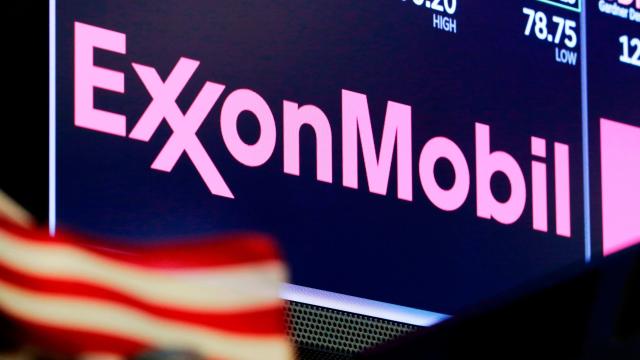Well, well, well, look who finally decided to join the Big Oil climate pledge party. The Wall Street Journal reported Thursday that Exxon, the company that for decades pushed climate denial on the world, is “considering” making a pledge to get its carbon emissions to net zero by 2050.
Forming a net-zero target is the barest minimum that a corporation can do in the year of our lord 2021, even for an oil and gas company: BP, Shell, and Total, along with several other international oil majors all announced their net zero emissions goals last year. For any other company, devoting an entire reported piece in the financial paper of record on the fact that they’re thinking about putting one in place now would be laughable.
But this is Exxon, one of the largest historic sources of pollution — and notoriously terrible when it comes to climate action. A report published by Oil Change International last fall comparing and contrasting climate plans for eight major international oil companies marked as Exxon only one of two companies to get a “grossly insufficient” ranking in all categories. Exxon CEO Darren Woods has also been weirdly aggressive about the prospect of the company making any moves to be better on climate, despite his very public (and very showy) support for the Paris Agreement.
In early March of last year, Woods slammed other oil companies for setting net zero targets, insinuating that it was nothing more than an attempt to look pretty in the public eye. “We’re very focused on trying to make sure that we’re talking about this holistically and actually taking steps to solve the problem for society as a whole and not to try to get into a beauty match, beauty competition, around whose sheet looks like what,” he told investors during an annual meeting. (Weird to bring pageants into this, but OK, Darren.)
It is true that these plans are largely smoke and mirrors bullshit. But not making any type of climate commitment is itself a statement. For Exxon, a lot has changed since March of 2020 — a whole lot. Most notably, the company got its arse handed to it back in May when investors revolted and elected three new board members who promised to use their power to force Exxon to firm up its climate game. Sources told the Journal that these board members’ arrival have made things a little more serious for Exxon’s top brass, who are now scrambling to figure out ways to keep investors happy. The Journal reported that one of the new board members, “Space Cowboy” Alexander Karsner, had a “contentious” exchange with Woods during a board meeting in July on the company’s failure to reduce its emissions.
Conveniently, the Wall Street Journal forgot to mention the other big crisis facing the company right now that could have shaped this decision. In late June, Unearthed, Greenpeace’s investigative arm, published video footage obtained in a sting of an Exxon lobbyist detailing how the company creates political climate gridlock and deceives the public, including a clip of the lobbyist calling a carbon tax an “advocacy tool” and “great talking point” as well as admitting that Exxon had poured money into “shadow groups” promoting climate denial. Embarrassing! It’s pretty clear the company needs a serious image makeover right now, and a red-carpet rollout for its net zero emissions plan could be just the ticket.
Of course, this being Exxon, we’d be shocked if any net zero plan they put forward actually has substance. In the past, Exxon’s feel-good green announcements have focused on emissions intensity, not actual emissions — a deeply problematic measurement that, in Exxon’s past climate plan, actually allowed for a 17% increase in carbon emissions each year. The Journal mentions that any net-zero plan would probably just focus on the company’s scope 1 and 2 emissions, those caused directly by Exxon’s assets and what it takes to dig up and refine fossil fuels. That leaves out what’s known as scope 3 emissions, or emissions caused by the sale of all that fossil fuel. Those are by far the lion’s share any fossil fuel company’s emissions, and Exxon is particularly bad on that front. In 2019 alone, Exxon’s scope 3 emissions totaled about 730 million metric tons of carbon dioxide, a lot higher than other oil companies like BP (360 million metric tons in 2019) and Royal Dutch Shell (576 million metric tons).
Research has shown that oil and gas companies spend the most on advertising following negative press. While a reported piece in the Journal is definitely not the same as an ad campaign, it’s clear that the company — or at least someone on the inside — made a decisive move in choosing to share this story with that paper. If I had to guess, we may be in for lots more fancy announcements about climate action as Exxon scrambles to polish its image. And while it’s nice to hope that corporations are acting in good faith, the International Energy Agency has said the only way we’re going to meet the targets of the Paris Agreement and have any hope of curbing warming is by stopping all new oil and gas exploration by next year. If Exxon makes that move, I’ll eat my hat.
